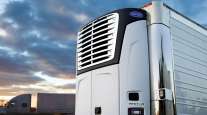The Detroit News
Automakers Tout Electric Future While Building More Diesels

[Stay on top of transportation news: Get TTNews in your inbox.]
As a commitment to a post-carbon future of zero-emissions electric vehicles, General Motors Co. is converting its Detroit-Hamtramck Assembly plant to the manufacture of electric trucks. Auto analysts forecast the vehicles will not be obscure green compacts, but the meat of GM’s big-vehicle lineup: GMC Sierra, Cadillac Escalade and a return of the Hummer.
At the same time, it is introducing for the first time diesel versions of its Chevy Tahoe and Suburban SUVs, and the Silverado pickup.
The paradox of GM’s dual commitment to diesel and electrification indicates the staying power of diesel technology at a time when fuel is plentiful and prices at the pump are just $3 a gallon. It is especially dramatic in the face of the Dieselgate scandal that has led to the abandonment of diesels by European manufacturers like Volkswagen and Audi, which are investing billions in electric-charging infrastructure.
But so efficient is diesel at moving heavy loads for long distances, that its resilience is creating doubts about the electric future touted by governments and manufacturers alike.
“Diesels don’t get enough ink these days,” GM President Mark Reuss said ahead of the Tahoe/Suburban rollout in Detroit last month. “This is really in the wheelhouse of people who want it. They really don’t care about the car diesel [scandal] that went on.”
GM is not alone.

In Episode 23 of RoadSigns, we look ahead to trucking's future by looking back. Hear a snippet from host Seth Clevenger, above, and get the full program by going to RoadSigns.TTNews.com.
Indeed, because of the sheer volume of the sport utility and truck segment — the largest chunk of the U.S. market by far — diesel-powered vehicles outsell EVs by more than 2-to-1, according to the Diesel Technology Forum, an industry trade group.
In the latest quarter for which data is available, sales of full-size diesel pickups in the United States were up 23% from the second quarter over the first quarter of 2019 — more than double the sales of all cars and trucks.
As diesel-engine options hit dealer lots in the Tahoe, Suburban and Silverado — and the Ford F-150, Ram 1500, Jeep Gladiator and Jeep Wrangler — that growth may accelerate.
An all-wheel drive Chevy Silverado or GMC Sierra powered by the new 3.0-liter V-6 Duramax diesel gets 25 mpg, which is 30% more efficient that its gasoline kin. Their range on a full tank of diesel is 600 miles, which is 144 miles more than a comparable gasoline V-8 model. Range is a key attribute for large vehicles buyers who tow for work and family trips.
The diesel Tahoe and Suburban SUVs, based on the same chassis as the Silverado, are expected to post similar fuel economy when they debut later this year.
The Silverado diesel variant comes with about a $5,000 premium over the gasoline V-8. For example, an AWD Silverado LT costs $50,900 versus $45,590 for a V-8-powered Silverado in the same trim-level.
That compares to a typical $15,000-plus premium for electric vehicles over similar gas-engine vehicles. A battery-powered Chevy Bolt, for example, costs about $15,000 north of a comparable $21,000 Chevy Sonic hatch; a Subaru Crosstrek plug-in costs $36,000 vs. a $22,000 gas-fueled Crosstrek.
The premium gets even steeper in large SUVs and pickups. Plymouth-based Rivian will debut its 230-mile range electric R1T pickup and R1S SUV later this year starting at $70,000. Rivian promises a 400-mile range vehicle, but that is expected to list well over $100,000.
“Electrification may be the wave of the future,” says Diesel Technology Forum Executive Director Allen Schaeffer. “But so far it’s not bearing out in the market. GM recognizes that you have to have vehicles that customers can buy.”

Schaeffer
GM also recognizes it won’t be able to sell in high-volume, so-called “zero-emission states” unless they make EVs available. The 10 states — including California, the biggest U.S. market — are forcing automakers to electrify 7-10% of their products by 2025. That’s within the current vehicle production cycle.
“There’s little natural demand for EVs because they’re not a better, more convenient solution to transportation than gas engines,” says veteran auto analyst Rebecca Lindland of RebeccaDrives.com. “Regulations are driving the move to EVs.”
Lindland says automakers — while investing short-term in proven diesel technology — are hoping there’s a demographic shift. They are betting that millennials will be interested in environmentally friendly trucks, especially buyers who aren’t utilizing their full capabilities as workhorses.
The generational shift is also a calculation of Tesla, which recognizes truck volume as key to its goal of flipping the industry to “sustainable transportation.” Currently, Tesla sedans and Model X SUV make up nearly 80% of U.S. EV sales — which are only 1.8% of the total market according to InsideEVs.com.
Unlike Rivian, Bollinger and other upcoming pickup offerings, Tesla promises that its pickup will start at a competitive $40,000. But it will have a range of 250 miles, just 40% of a Chevy truck.
Also complicating the electric-truck calculation is the stress of towing on battery range: Truck-testing authority TFLTruck.com, for example, has found that the Tesla Model X SUV only gets 30% of its range when towing 2,000 pounds.
The F-150 has been the biggest diesel seller among Detroit automakers, joining oil-burning service vehicles like the Ford Transit and Mercedes-Benz. But the addition of popular Chevrolet, Ram and Jeep models promises more diesel penetration.
“Customers have been asking for diesels in these vehicles for along time,” says Diesel Technology Forum’s Schaeffer, who says there are nearly 50 diesel offerings in the market. “It will be interesting to see how much the sales numbers grow as new vehicles come on line.”
Want more news? Listen to today's daily briefing:
Distributed by Tribune Content Agency, LLC




